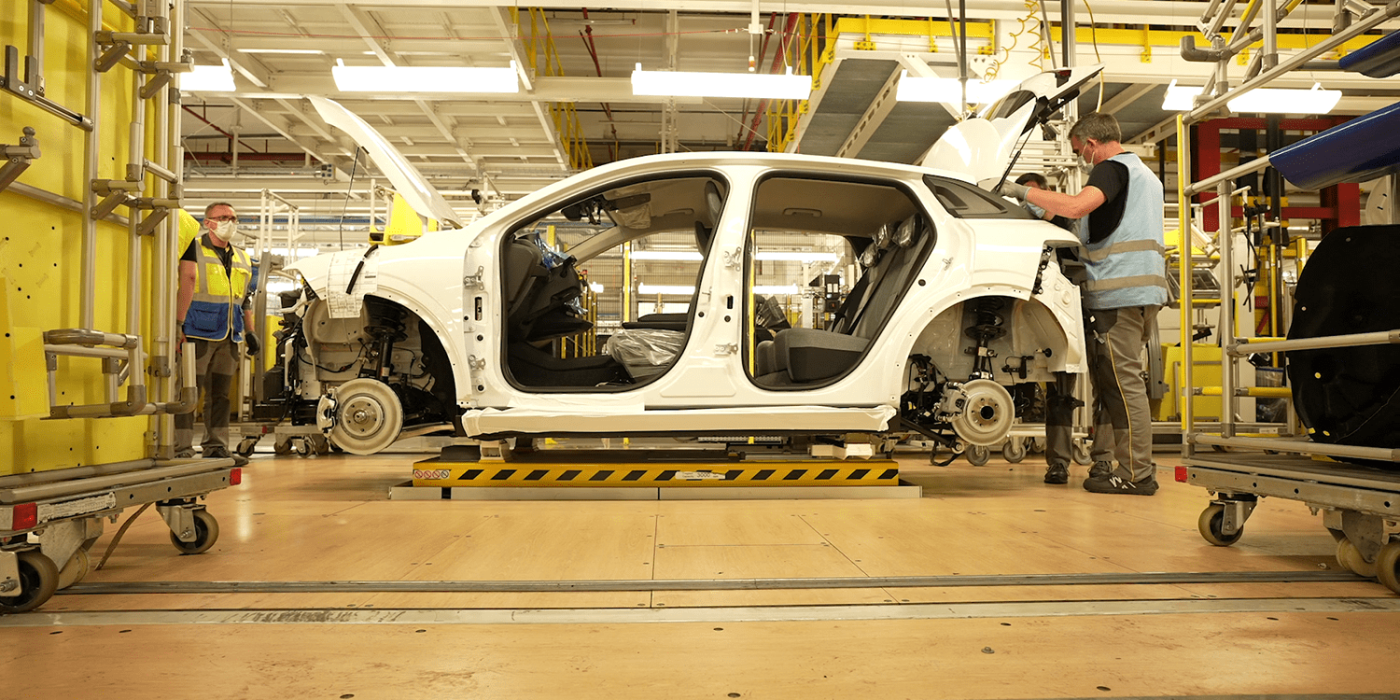Renault retools Douai plant for electric Mégane
Preparations are underway at the Renault plant in Douai for series production of the Mégane E-Tech Electric, due out in the first half of 2022. Renault Group says it is investing more than 550 million euros in the production facilities there and in improved workplace ergonomics.
The conversion of production from combustion engines to electric drive requires a “profound transformation of the production lines” in Douai, the French carmaker informs. The first step in this transformation has now been the conversion of an assembly line that can now produce numerous models from various vehicle classes, including the Mégane E-Tech Electric, which was unveiled in the course of the IAA earlier this month and which will be produced exclusively at the Douai plant. The Renault 5 Electric, scheduled for 2024, has also already been confirmed for the northern French plant.
Renault says the characteristics of the modernised production in Douai are the high degree of networking in production. For example, automated vans that bring parts and assemblies to the right place on the assembly line at the right time are mentioned. In future, the battery assembly line newly established at the site will deliver the energy storage units with precision fit. The paint line has also been completely renovated. Robots in the body shop will ensure modularity and flexibility in production.
A central component of the site’s electromobility strategy is the on-site battery production and assembly that was officially announced in the summer. This is based on a partnership between the Renault Group and Envision AESC. Renault officially speaks of a planned “Gigafactory” with a capacity of 9 GWh by 2024 and 43 GWh by 2030 (of which Renault intends to purchase 24 GWh).
The 2 billion-euro Envision AESC battery factory in Douai will complement the Renault ElectriCity mobility industry cluster announced in June. The new umbrella company will bring together the electric car activities of the Douai, Maubeuge and Ruitz plants in northern France and is expected to build 400,000 vehicles a year from 2025.
In its latest announcement on the conversion of the Douai plant, Renault affirms that it aims to make ElectriCity the largest production centre for electric mobility in Europe. “To achieve this, Renault is optimising industrial processes, increasing operational efficiency and creating an entire ecosystem that will contribute to lower fixed costs,” the Group writes.
With Douai, Renault is now setting the course at a site steeped in tradition. The plant stands for many milestones in Renault’s model history. More than ten million vehicles have been produced there to date, including the Renault 5, Renault Fuego, Renault 19 and Scénic models. A new chapter is now beginning in Douai with the introduction of the CMF EV platform for electric vehicles. The Mégane E-Tech Electric is the first electric vehicle to be built on this platform and marks the beginning of a new generation of vehicles for the French.
Basically, Renault’s electric strategy is supported by two platforms: the CMF-EV from the Renault-Nissan-Mitsubishi alliance is designed for the C and D segments, the CMF-BEV for smaller and more affordable vehicles such as the Renault 5.
With reporting by Cora Werwitzke, France.





1 Comment